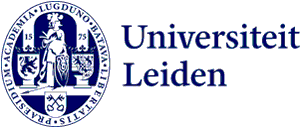
Sofie Hajer wins prize for research on balancing wind energy and biodiversity
How do you combine the growth of wind energy with the protection of vulnerable seabirds? With her master’s thesis on this delicate balance, Sofie Hajer won the 2025 Unilever Research Prize. Her work provides new insights into how ecology and policy can strengthen each other.
Stronger international coordination, more nature-focused solutions, and policies better supported by ecological data – that is what Hajer advocates in her master’s research at Leiden University. Her study shows that wind farms have significant impacts on protected seabird populations, while current mitigation measures fall short. It also reveals that the Netherlands and the United Kingdom interpret the European Birds Directive differently, which complicates effective protection.

Where ecology, policy and borders meet
To support better policy-making, the Governance of Sustainability student analysed how ecological risks, cross-border regulations, and administrative processes interact. She focused on the Natura 2000 site the Brown Bank, an ecologically valuable area between the Netherlands and the UK. Her combination of seabird population models, document analysis, expert interviews and field observations produced a unique and integrated picture.
The motivation for her research comes from the planned nearly fivefold increase in offshore wind capacity by the Dutch government. While this expansion is crucial for the energy transition, it also poses a threat to biodiversity in the North Sea. Hajer’s work shows how the tension between sustainable energy and nature conservation can be better managed.
‘The fact that the research was recognised in this way means a great deal to me.’
Greening the energy sector while protecting biodiversity
Professor Sarah Giest, together with Caitlin Black, her supervisor, describes Hajer as an exceptional student: ‘Sofie combined a structured, analytical approach with a deep commitment to sustainability. Her research is innovative, interdisciplinary and socially relevant. It provides valuable insights for both the greening of Europe’s energy sector and the protection of biodiversity.’
On receiving the prize, Hajer says: ‘Being nominated by my study coordinator was already special, but having my research recognised in this way means a lot to me. It’s a wonderful confirmation that the effort and curiosity I put into my thesis have not gone unnoticed.’
